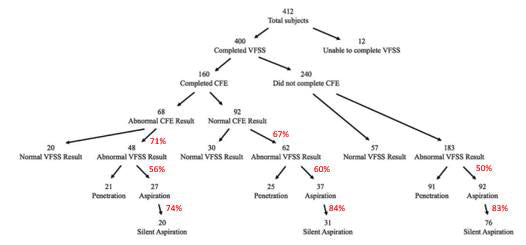July 2023 Pediatrics Newsletter
“When we honor our flag, we honor what we stand for as a Nation – freedom, equality, justice, and hope.” – Ronald Reagan
Hi all! For anyone new to the newsletter, my name is Ashley Stone, and I am the pediatric SLP at DiagnosTEX. Our outpatient Modified Barium Swallow Study clinic is now open for pediatric patients of all ages! We have supported seating devices for those that are in need and have the capability to also complete studies in a side-lying position. A few quick facts:
Research Article Predicting Signs and Symptoms do not Predict Aspiration in Children
Objecting and instrumental assessment of the swallow is imperative to the health and safety of children that present with chronic respiratory symptoms, as aspiration pneumonia only occurs in less than 10% of children. Four different research articles mentioned within this article, cite that more than 80% of pediatric aspiration is silent. Chronic aspiration can lead to declining medical status, as well as poor overall feeding behaviors (oral aversion, poor weight gain, limited diet, etc.). The authors of this study retrospectively reviewed records of children 2 years old and younger who had either had a clinical feeding evaluation (CFE), Videofluoroscopy study (VFSS), or both at Boston Children’s Hospital in 2015.
This study aimed to describe the variety and range of symptoms in children presenting for a clinical feeding evaluation and/or a VFSS, as well as determining if the timing of these symptoms could predict aspiration.
All exams were performed by an SLP. Both exams (CFE and VFSS) were performed by starting the evaluation with thin liquids and progressing in viscosity, if a concern for aspiration was present. Presence of symptoms was obtained via medical records.
A total of 400 VFSS were reviewed within this study. Of those 400 patients, 160 of those patients also had a clinical feeding evaluation. There is a lot of information within the article regarding various signs/symptoms and diagnosis for each patient. However, I found the following diagram helpful in visualizing the importance of completing a VFSS, due to the high percentage of patients presenting with a normal CFE but an abnormal VSS, as well as the overall prevalence of silent aspiration. Feel free to read the article in its entirety for a more in-depth analysis.

Reference: Duncan DR, Mitchell PD, Larson K, Rosen RL. Presenting Signs and Symptoms do not Predict Aspiration Risk in Children. J Pediatr. 2018 Oct;201:141-146. doi: 10.1016/j.jpeds.2018.05.030. Epub 2018 Jun 28. PMID: 29960768; PMCID: PMC6412137.
Do you have an interesting topic that you would like to share in this newsletter? If there is some interest, I would like to start a spotlight section each month featuring a topic from someone other than myself. If this sounds like something you would like to partake in, please email me!
We are always available Monday-Friday, 8:00am-4:30pm, to answer any questions you may have! If you have any questions regarding the referral process or patient specific questions, please email me directly at ashley@diagnostex.us.
I, and the rest of the DiagnosTEX staff, look forward to helping you serve your patients and ensure a safe diet for ALL children.
Keep an eye out for a newsletter each month & feel free to share with your colleagues and friends!

